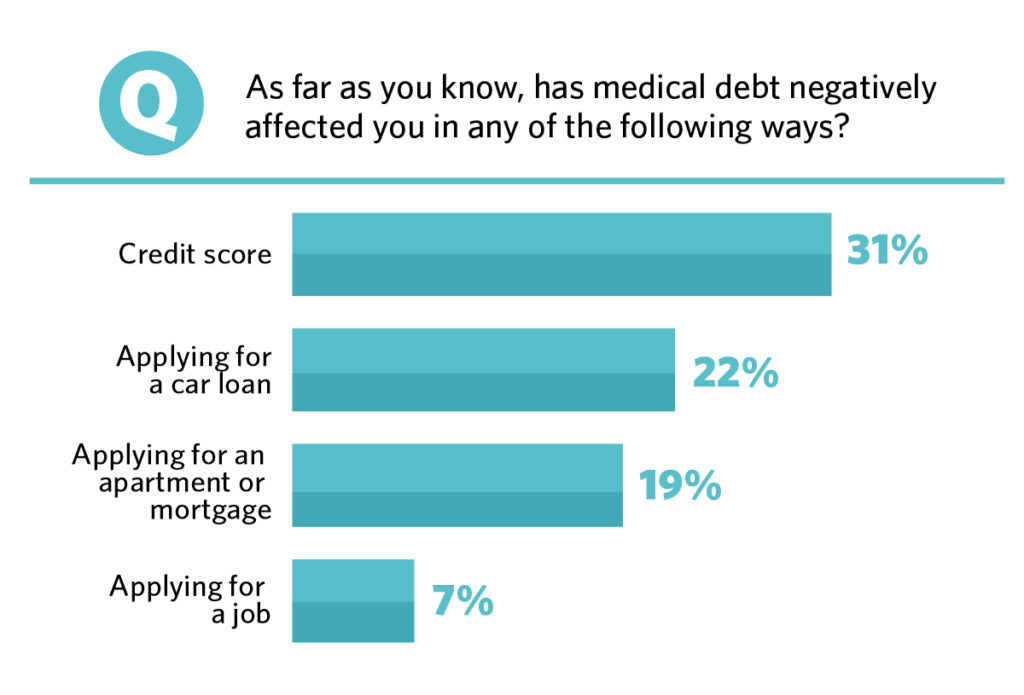When you go to the doctor, you shouldn’t be more afraid of the bill than the diagnosis. Unfortunately, that was the situation for my family. As a child, the crushing impact of medical bills shaped my health and our entire way of life. Now, as a health policy strategist at Missouri Foundation for Health (MFH), I’m dedicated to tackling this urgent issue and ensuring that no family has to endure the same struggle.
Over the past year, MFH has begun investigating the medical debt crisis in our state. We’ve conducted two studies so far to uncover who is most affected and what drives this pervasive issue. Our journey began with focus groups that explored the real experiences of individuals across the state grappling with medical debt. This was followed by a statewide survey, designed to gather insights on potential policy solutions and deepen our understanding of those impacted by health care-related debt.
Reflecting on my own childhood, I vividly remember when my mom first explained the term “elective procedure.” Without health insurance, essential treatments for my chronic condition felt like distant dreams. My working-class parents, supporting four children, struggled under the weight of health care costs. Ultimately, the mounting expenses led them to file for bankruptcy when their wages couldn’t keep up with my medical bills.
Witnessing my family’s struggles ignited my passion for advocacy. Today, medical debt remains a pressing issue nationwide, and Missouri is no exception. Our latest report reveals that half of Missouri adults are faced with medical debt, echoing findings from the national study showing that 40% of U.S. adults report current medical debt. This financial strain affects every aspect of life, from lowering credit scores to blocking loan approvals for cars and housing.

While public discourse has focused on ensuring people have insurance, this is only part of the solution. Our research shows that 78% of Missourians with recent medical debt had insurance at the time of their care. When my health care story began in 1989, many essential legislative protections did not exist. I’ve celebrated policy advancements like the Children’s Health Insurance Program which expanded Medicaid coverage to children in 2002, and the Affordable Care Act of 2010 which provided protections for folks like me with pre-existing conditions. Both would have been gamechangers for my family when I was diagnosed. Yet, despite these improvements, the issue of accumulating medical debt persists.
Fortunately, we can learn from states that have successfully implemented measures to alleviate medical debt. For example, health care providers in Maryland and Maine must inform patients about financial assistance before collecting payments. Our latest report shows that Missourians are ready for similar changes; 94% of survey respondents would support requiring medical providers and hospitals to disclose all available support options with medical bills.
Medical debt is a crisis in our state, and we are continuing to look into how it is created, managed, and resolved for individuals and families. Next, we will be exploring how hospitals statewide are handling the issue. Medical debt is a systems issue, meaning the crisis is not rooted in individual choices or situations, but instead in things like insurance, the cost of care, and other elements of the health care system. MFH is committed to systemic policy solutions that focus on changing the broader structures that contribute to medical debt, therefore improving the whole system so that it becomes less of a problem for everyone.
My own experiences showed me just how crucial it is to make care accessible and affordable for everyone. Together, we can push for policy changes that reduce the burden of medical debt and ensure that no one has to face the struggles my family did. By continuing this research, we can advocate for a future where health care empowers, not hinders, our communities.



